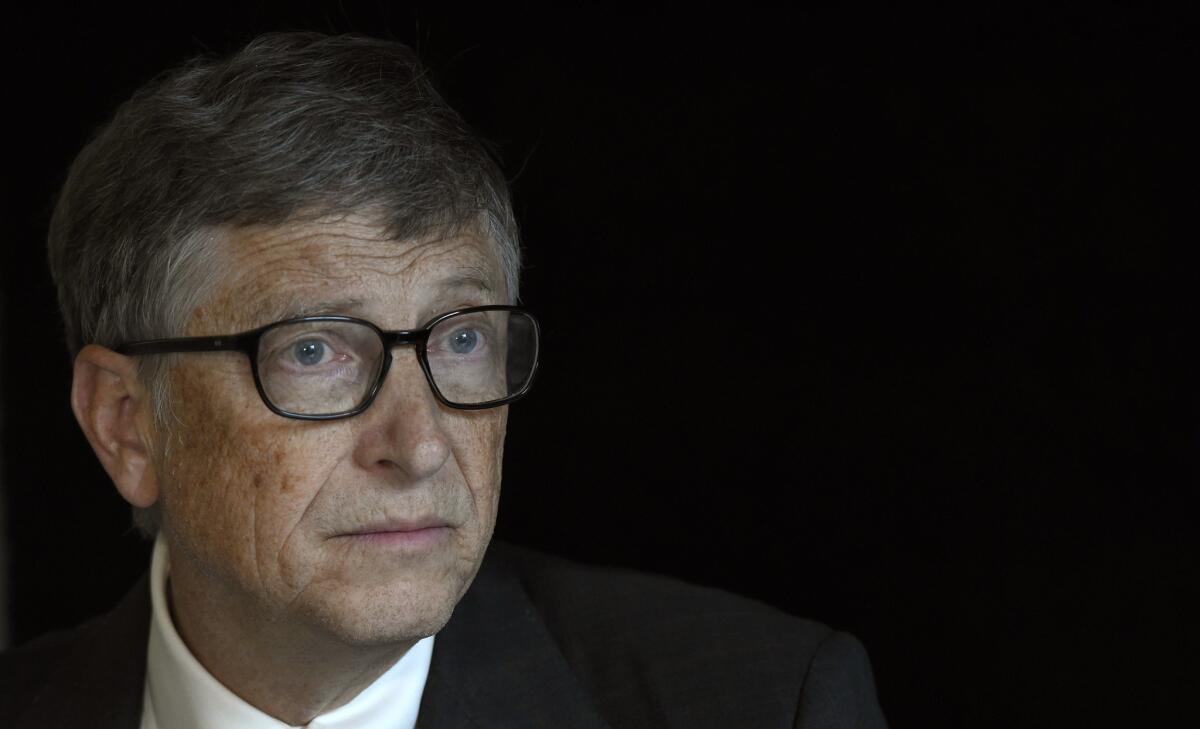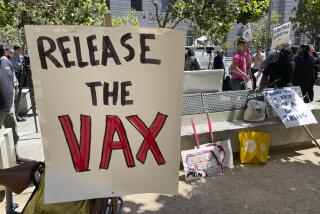Bill Gates: World must prepare for outbreaks deadlier than Ebola

Billionaire philanthropist Bill Gates is calling for a global effort to combat future epidemics, much the way Western nations formed the North Atlantic Treaty Organization to confront military threats.
In a Perspective article published Thursday in the New England Journal of Medicine, the cofounder of Microsoft and the Bill & Melinda Gates Foundation said the West African Ebola epidemic has served as a “wake-up call” to the world.
To date, the Ebola epidemic has sickened 24,743 and killed 10,216, according to the World Health Organization. Yet the virus is far less contagious than even influenza or the measles.
“There is a significant chance that an epidemic of a substantially more infectious disease will occur sometime in the next 20 years,” Gates wrote.
“The world needs a global warning and response system for outbreaks.”
In his view, this would require a global institution that is given enough authority and funding to effectively combat epidemics.
The organization would involve a reserve corps of trained personnel and volunteers -- incident managers, epidemiologists, local community leaders, public information workers and others -- who would respond quickly once an outbreak was detected. Preparedness exercises would “identify the ways in which the response system needs to improve,” Gates said.
Although the WHO has a Global Outbreak Alert and Response Network, Gates called it “severely understaffed and underfunded.” A well-organized global response program would help to coordinate logistics and stockpile the tents, power sources, medical supplies and other resources required in an epidemic.
“All countries could identify trained military resources that would be available for epidemics; in a severe epidemic, the military forces of many or all middle- and high-income countries might have to work together,” Gates wrote.
The Ebola outbreak has highlighted economic and structural problems that allowed the illness to spread uncontrollably late last year.
Chief among them, according to Gates, was the lack of reliable healthcare systems in those nations hit hardest by the epidemic: Liberia, Guinea and Sierra Leone.
Investing in improved health systems for poor nations and helping them to establish systematic disease surveillance systems will do much to help confront epidemics of the future, he said. Expanded Internet and cellphone access, as well as improved diagnostic capabilities, would be part of this.
Lastly, Gates proposed the creation of a global epidemic drug-approval process.
He said that in the case of the Ebola epidemic, there were drugs available that worked on similar viruses.
“Unfortunately, they were not tested in patients with Ebola until after the epidemic had peaked -- in part because there was no clear process for approving a novel trial format or for providing indemnity against legal liability,” Gates wrote.
“We will need to develop a clear set of guidelines (and testing and regulatory pathways) for determining whether existing drugs could be re-purposed to help stop a particular epidemic.”
The U.S. Food and Drug Administration released a statement on Gates’ recommendations late Friday, following a request from The Times.
Among a number of points, the FDA said it was “not aware of any investigational drugs that have been shown to be safe and effective to treat infection by viruses that are ‘similar to Ebola’ that are awaiting studies for repurposing.”
“We agree with Mr. Gates on the importance of developing novel clinical trial formats that can efficiently generate interpretable efficacy data and identify potential harm to patients in an outbreak with a serious and highly lethal disease like Ebola,” the FDA statement read.
“Unfortunately, we have encountered a desire to rely on old fashioned, historically controlled trial designs. The science simply does not support the conduct of such trials for Ebola, and we fear we may reach the end of this epidemic having learned very little about several investigational products, leaving us less prepared for the next Ebola outbreak.
“As for a ‘global epidemic drug approval process,’ we would note that regulating medical products entails much more than approving products,” the statement read. Those responsibilities, the FDA said, run the entire “life-cycle” of a product, from early clinical trials to marketing applications and post-marketing.
“Developing some kind of global epidemic drug approval process that would presumably exert some level of authority that spans sovereign states would be a complex undertaking,” the FDA said.
Follow @montemorin for science news







